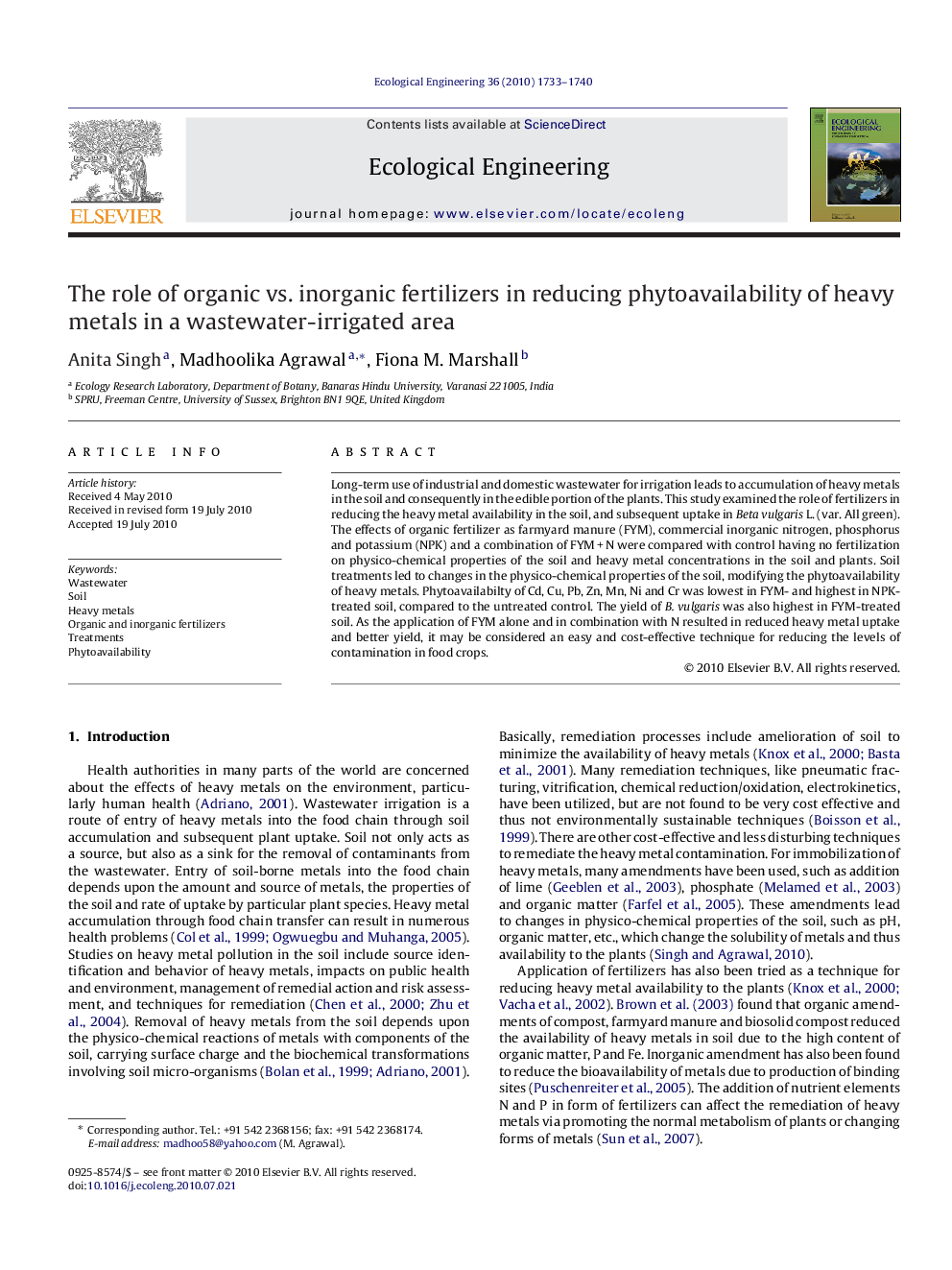| Article ID | Journal | Published Year | Pages | File Type |
|---|---|---|---|---|
| 4390486 | Ecological Engineering | 2010 | 8 Pages |
Long-term use of industrial and domestic wastewater for irrigation leads to accumulation of heavy metals in the soil and consequently in the edible portion of the plants. This study examined the role of fertilizers in reducing the heavy metal availability in the soil, and subsequent uptake in Beta vulgaris L. (var. All green). The effects of organic fertilizer as farmyard manure (FYM), commercial inorganic nitrogen, phosphorus and potassium (NPK) and a combination of FYM + N were compared with control having no fertilization on physico-chemical properties of the soil and heavy metal concentrations in the soil and plants. Soil treatments led to changes in the physico-chemical properties of the soil, modifying the phytoavailability of heavy metals. Phytoavailabilty of Cd, Cu, Pb, Zn, Mn, Ni and Cr was lowest in FYM- and highest in NPK- treated soil, compared to the untreated control. The yield of B. vulgaris was also highest in FYM-treated soil. As the application of FYM alone and in combination with N resulted in reduced heavy metal uptake and better yield, it may be considered an easy and cost-effective technique for reducing the levels of contamination in food crops.
